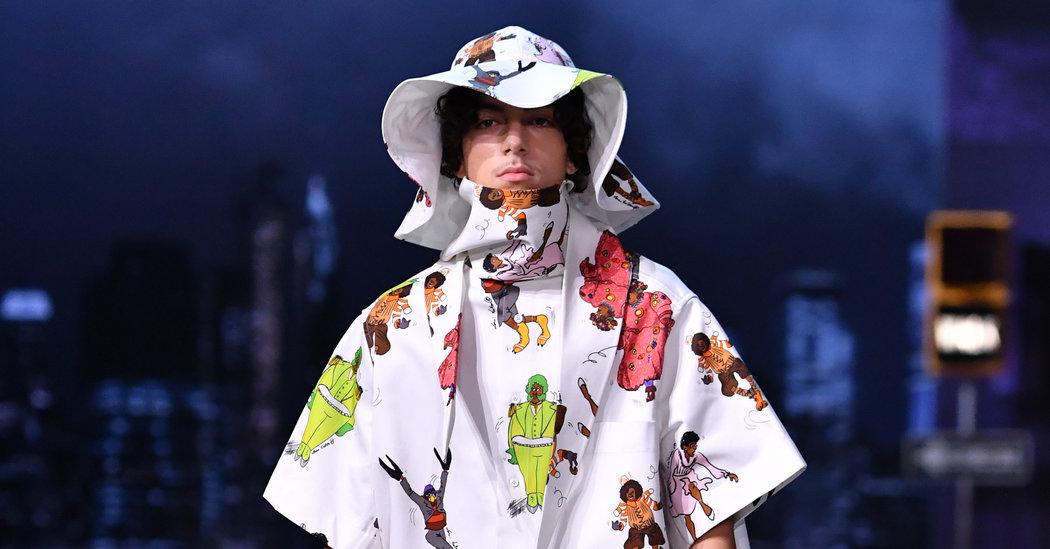
The disparity between what designers tout as their sources of inspiration and what turns up on the runway can be either comical or grim.
Take the case of Virgil Abloh’s sophomore collection as the creative director of men’s wear for Louis Vuitton. Interviewed at his studio before his January show in Paris, Mr. Abloh spoke of his childhood idol Michael Jackson as something far more than a great entertainer. He was, he said, “the most important innovator in men’s wear history.”
Though that point is debatable, it was one Mr. Abloh underscored by sending out white rhinestone gloves as show invitations and transforming a tent in the Jardins des Tuileries into a likeness of the sidewalk set from Jackson’s “Billie Jean” video.
That the show itself had scant literal connection to the entertainer was, in the end, fortunate for Mr. Abloh considering the attention trained on Jackson’s alleged history of sexually abusing children, in the documentary “Leaving Neverland.”
In a recent New Yorker profile that somewhat overstated Mr. Abloh’s status by anointing him “menswear’s biggest star” (Alessandro Michele, anyone? Demna Gvasalia? Craig Green?), he was asked whether he had heard anything about the HBO documentary. His bland reply was reflective of both the communications savvy necessary to the reboot of a stodgy fashion behemoth and also, to a certain extent, the truth.
He had not heard about the documentary, Mr. Abloh told the magazine, and, anyway, he had wanted to focus on “the Michael that I thought was universally accepted, the good side, his humanitarian self.”
While it is hard, in the wake of “Leaving Neverland,” to now imagine Jackson’s “humanitarian self,” Mr. Abloh could have been thinking of the pop star well before all the damning allegations: as tragic sprite re-enacting a stolen childhood, as pop culture deity disseminating a message of love as he systematically destroyed his own existence.
Whatever else Jackson was (or was not), it amounted to more than a sweater knitted with cartoon characters from “The Wiz.” And this, despite his bland demurral, Mr. Abloh must have known.
No less than Jackson did, Mr. Abloh possesses a stealth gift parallel to those he displays as a designer. Though he may surround himself with throngs of friends, operate on so many channels that his energy seems inhumanly dispersed, and travel the globe as much as six months a year, he remains in control.
Pitched as homage, the Jackson-themed Vuitton collection could equally have been seen as an attempt at market capture. True, the leather flags Mr. Abloh used as pennants on his costly handbags included one from Jackson’s home state, Indiana. But the greater percentage of them represented sub-Saharan African nations with growing populations of wealthy consumers Louis Vuitton is keen to exploit.
Thus in both the Jackson version and that of Mr. Abloh, “We are the world’’ could be read as either a blameless summons to global unity or the potential heading on a corporate report. (When contacted for comment, representatives for Mr. Abloh and Louis Vuitton did not immediately reply.)







